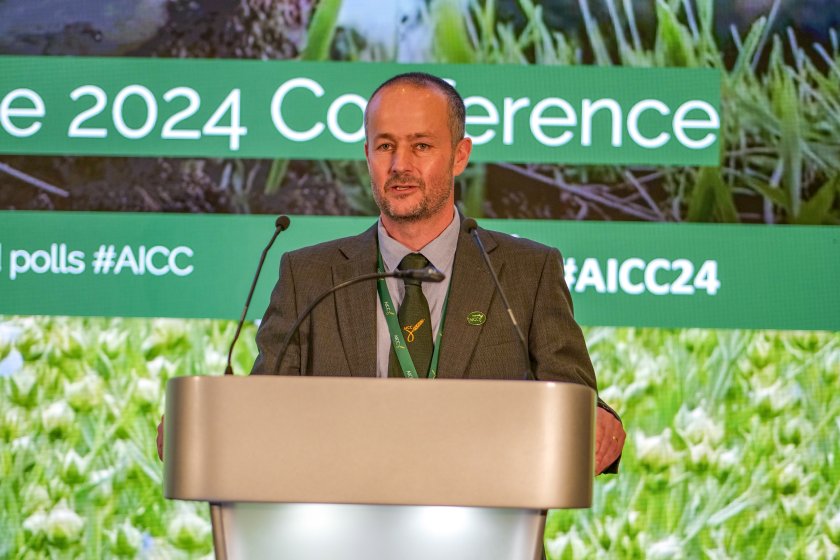
'Unforeseen consequences' of the post-Brexit Sustainable Farming Incentive (SFI) are a major concern for independent agronomists, an industry conference heard.
Agronomists at the Association of Independent Crop Consultants (AICC) conference reported that significant areas of arable land are being taken out of food production and put into non-food producing SFI options.
A poll at the conference, which took place on 17 and 18 January, revealed that the majority of AICC members are involved in SFI applications, either taking control of the process or advising on most suitable actions.
Whilst there is an acceptance farmers need to be incentivised to produce food more sustainably, fears were highlighted that it could have devastating consequences for associated agri-businesses, including their own.
AICC chairman Andrew Blazey said like farmers, agronomists need to adapt to the rapid change playing out in UK agriculture at present as new government policy comes online.
He said: “We’re already seeing this with our members being actively involved in SFI applications and our farmers are looking to us for advice on new technologies, and carbon capture and trading.
“This is in addition to risk management and ensuring the crop production side of the business performs to is full potential.”
However, Buckinghamshire agronomist Andrew Cotton warned that contractors and farmers reliant on contracting their neighbour's farms could struggle to survive, where large areas of arable land are being put into SFI, which is increasingly common.
Once these businesses are lost, it would be very difficult for them to re-enter the industry due to the ever-increasing cost of new machinery, he said.
“It has already had a significant impact on a local grain trailer manufacturer, who has seen sales plummet,” Mr Cotton warned.
Defra’s Fiona James responded, assuring the conference's audience that the government is keeping a watching brief on unintended environmental, economic or food production consequences with monitoring and evaluation programmes.
During engagement with farmers and the wider industry up to this stage of the rollout, they had picked up similar stories and concerns, she said.
“It’s how we build up over time from anecdotal evidence to hard facts that [will] enable us to have the evidence base… to course correct, to iterate our measures over time,” she said.
Ms James added that if Defra does see unexpected adverse impacts, then the department would act promptly to address any critical issues.
Despite worries about SFI’s long-term impact, AICC members welcomed more detail following the 2024 update at the Oxford Farming Conference early last month.
Payment rates are now 10% higher on average and there are 50 new actions to choose from alongside 50 updated ones.
Stacking these options as part of their three-year SFI agreement or agreements is encouraged and Defra hopes 70% of farms will be in the scheme by 2028.
New actions of interest to arable producers include precision farming adoption, with £27/ha paid for variable rate application of macronutrients nitrogen, phosphorus, and potash.
There are also options aimed at reducing the quantity of herbicide active substances applied.
These include £43/ha for use of camera or remote sensor guided herbicide applications, £150/ha for robotic mechanical weeding and £101/ha for robotic non-mechanical weeding with electric or laser weeders.
For soil health, growers can claim £73/ha for no-till farming with the action requiring growers to direct drill straight into stubbles. Strip-till drills will not be eligible.
AICC adviser Peter Cowlrick raised another worry about unforeseen consequences from this option, suggesting that remedial cultivation might be required in some cases to improve water infiltration, particularly after a wet harvest where soil structure is compromised.
“Without it, there could be increased risk of run-off and elevated flood issues,” he added.
Defra’s SFI policy development lead, Jonathan Marsden said they are aware no-till is not for everyone and the offer is primarily aimed at rewarding those already direct drilling their crops.
However, it could also encourage uptake where appropriate, with improved soil health and carbon capture key aims, he said.
He added that that is why Defra have moved to this 'pick and mix' approach for SFI actions rather than dictating the rules.
The no-till option builds in the occasional need for subsoiling without penalty, Mr Marsden said, helping to minimise issues with drainage.
